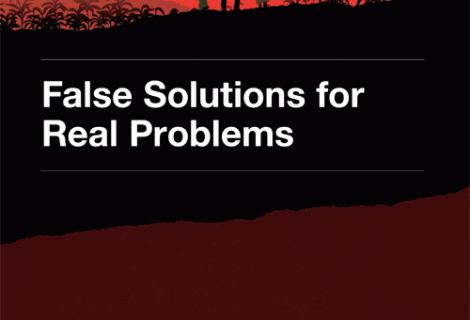
Rich countries are showing little political will to agree to second commitment period of the Kyoto Protocol at the upcoming Durban meeting of the UN Framework Convention on Climate Change (UNFCCC). The Kyoto Protocol is the only legally binding international instrument with emission reduction targets and a timeline but rich countries are promoting a much weaker ‘pledge and review’ mechanism for emissions reduction which lets them off with little accountability.
This is tragic, because pledges put on the table so far by rich countries to cut their greenhouse gas (GHG) emissions are way below the levels necessary to avert disastrous climate change. They would in fact likely lead to a 3.5ºC1 and possibly a 5ºC rise in temperatures by the end of the century, according to UNEP.2
Shifting the climate burden South
While even a 2ºC temperature rise would devastate agricultural production, putting the food security of over half a billion people in tropical countries at risk,3 rich countries at the UNFCCC are striving to divert attention away from their paltry emissions reduction promises and seem determined even to ‘offset’ their agreed responsibilities by shifting their burden onto poorer countries and millions of smallholders in the South.
The sums needed in the Global South for affected communities to adapt to accelerating climate change and begin the transition to a sustainable future are far greater than the currently-pledged $100 billion a year by 2020, promised by rich countries in 2010.
And so while rich countries have shown little appetite for coming up with adequate, predictable, additional and reliable public financing to meet their $100 billion/year climate commitment, rich countries, the World Bank and a shadowy army of private sector and industry-body lobbyists, consultants and commodity speculators have been eager to promote apparently innocuous but highly dubious market-based initiatives and so-called solutions to help fill this ever-widening financing gap.